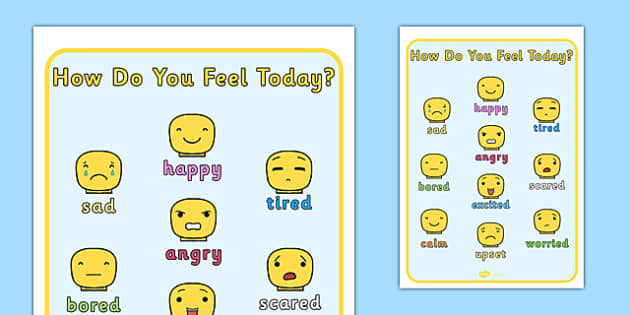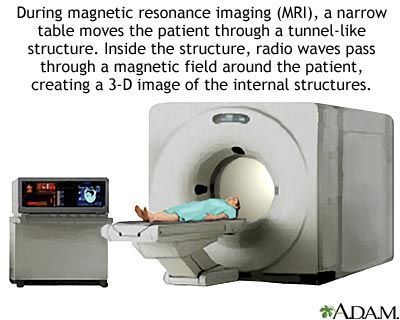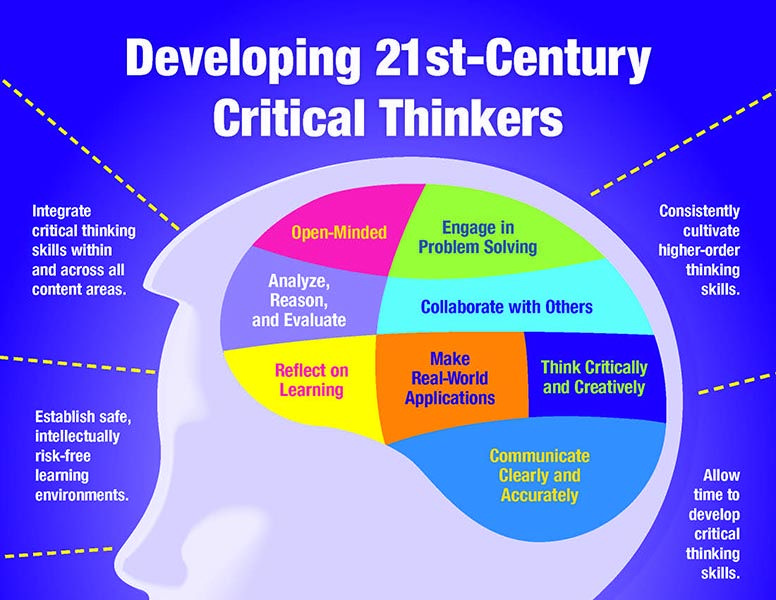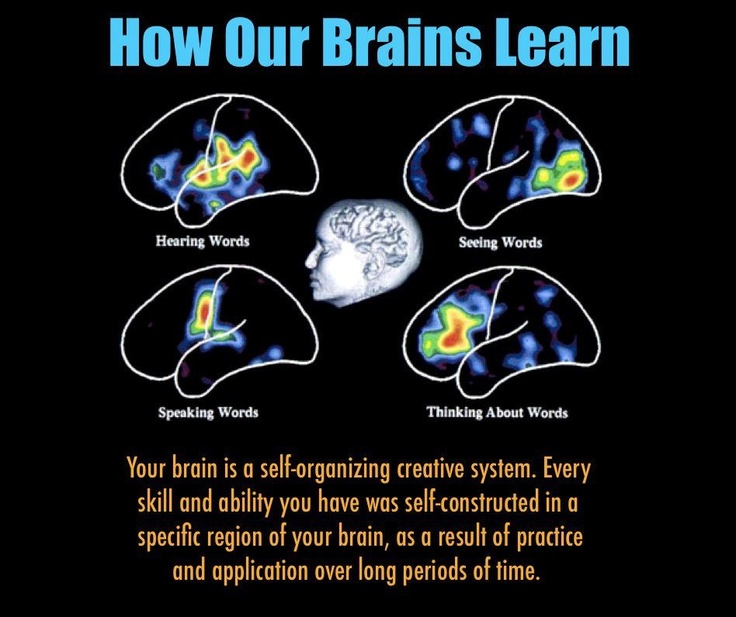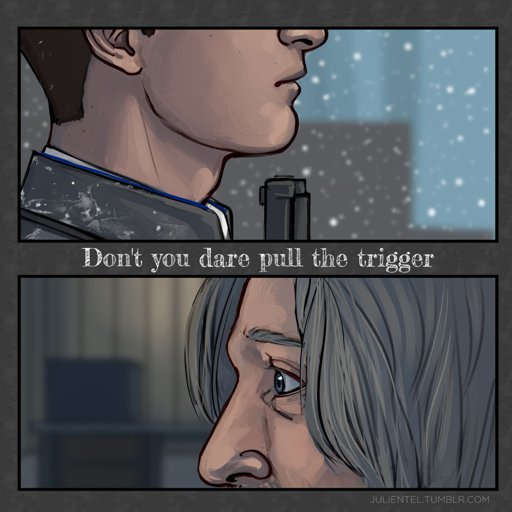How to help anxiety chest pain
Anxiety Chest Pain: Signs, Symptoms & How to Treat
If you’re one of the 40 million Americans who live with an anxiety disorder, chances are you’ve experienced not just mental and emotional symptoms, but physical symptoms—especially if you have experienced a panic or anxiety attack. The physical symptoms of anxiety can be painful, annoying, and sometimes even scary.
One symptom that can be particularly worrisome is pain in and around the chest—a feeling some anxiety sufferers experience regularly, often during anxiety or panic attacks.
Because the chest is home to important organs like the lungs and heart, it’s understandable that feelings of discomfort in this area may frighten you. Unfortunately, this can lead to even more anxiety.
We created this guide to instead help calm your nerves.
In this article, you’ll learn why anxiety chest pain happens, what it feels like, how long it lasts, how to make it stop, and more.
You’ll also learn the difference between anxiety-related chest pain and heart attack-related chest pain, and when you should seek help from a medical professional.
Talk to a Doctor Now
Whether from anxiety or other causes, chest pain can be scary. You don’t have to go through it alone. Talk to a doctor now.
- Fast: Chat with a doctor in minutes
- Easy: On your phone, on your schedule
- Reliable: Advice, prescriptions, and referrals
Get Started
Can Anxiety Cause Chest Pain?Yes. Many people who experience anxiety also experience chest pain, especially during anxiety or panic attacks.
Though it can be frightening and painful, anxiety sufferers can take some comfort in knowing that there’s a reason for this uncomfortable symptom: It’s your brain and body trying to protect you from a real or perceived stressor.
Anxiety Chest Pain SymptomsAnxiety chest pain can feel different to different people. Symptoms in the chest area can be described as:
- Sharp, shooting, or stabbing pain
- Persistent, dull aching
- Tightness, tension, or pressure
- A burning sensation
- Numbness in certain areas
- Twitching or spasms
These uncomfortable feelings can come on gradually, or all at once.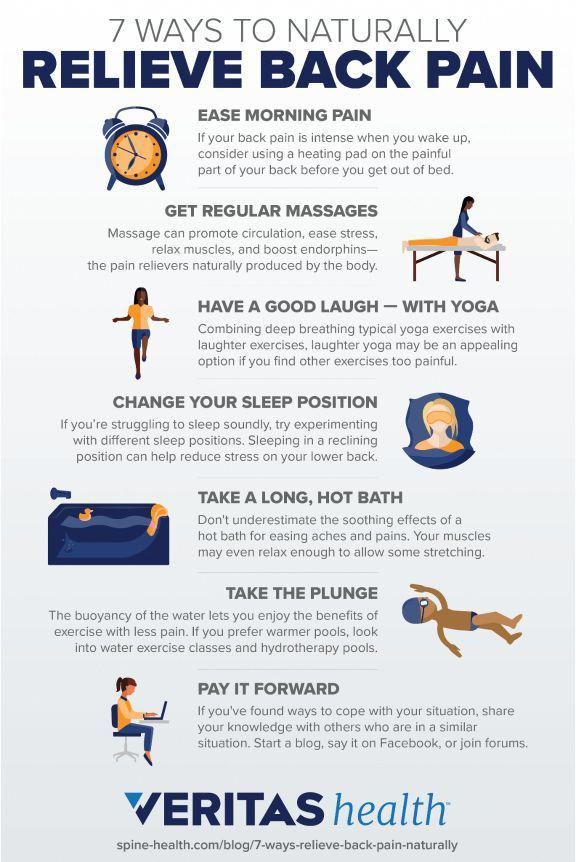
It is more typical, however, for chest pain to present itself during panic or anxiety attacks that come on quickly, and for the sufferer to already feel anxious before the chest pain starts.
Why Does Anxiety Cause Chest Pain?Anxiety is the body’s response to a real or perceived stressor, and anxiety and panic attacks can produce a number of physical symptoms in addition to mental turmoil.
When you’re anxious, your body enters what’s typically referred to as a “fight or flight” state, preparing to help you battle against (or flee from) something that could hurt you.
Your body does this in many ways, including increasing your heart rate, breathing rate, and blood pressure, and by triggering the release of adrenaline and noradrenaline.
Many of these “fight or flight” responses can cause chest pain. Common causes for chest pain include:
- Muscle tension: This is typically a result of stress and can manifest itself as tightness in the muscles in the chest.
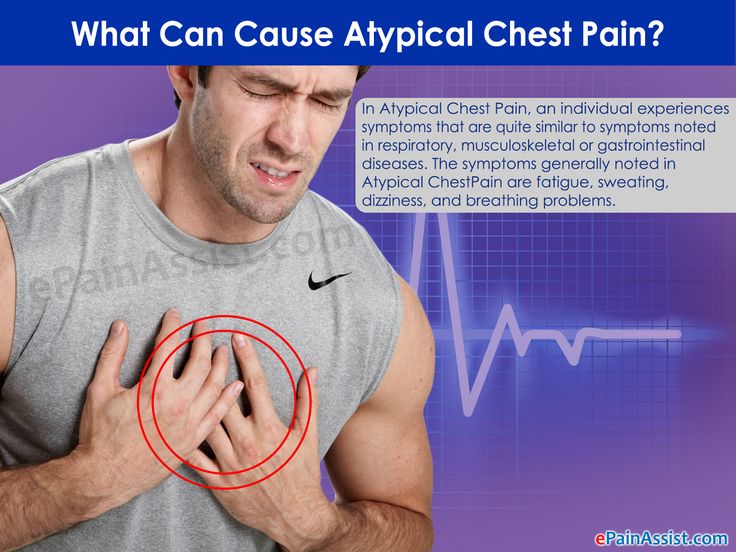
- Increased heart rate: This can lead to feelings of pounding in the chest, heart palpitations, and coronary artery spasms.
- Hyperventilation: This is a result of shortness of breath, and can cause changes to the level of carbon dioxide in the blood.
- Increased blood pressure: This can increase oxygen demand in the heart and put a strain on the smaller blood vessels due to increased blood flow.
Though it can feel alarming, anxiety chest pain is fleeting. Pain typically lasts around 10 minutes, though other anxiety or panic attack symptoms (like dizziness, shortness of breath, or nausea) may last longer.
If your symptoms continue, are getting worse, or are just concerning, call your doctor, visit an urgent care center, or be evaluated through a telehealth appointment as soon as possible.
Some panic or anxiety attack sufferers may also feel soreness in the chest area for a few hours after the attack, due to the intense muscle contractions in the wall of the chest that took place during the attack.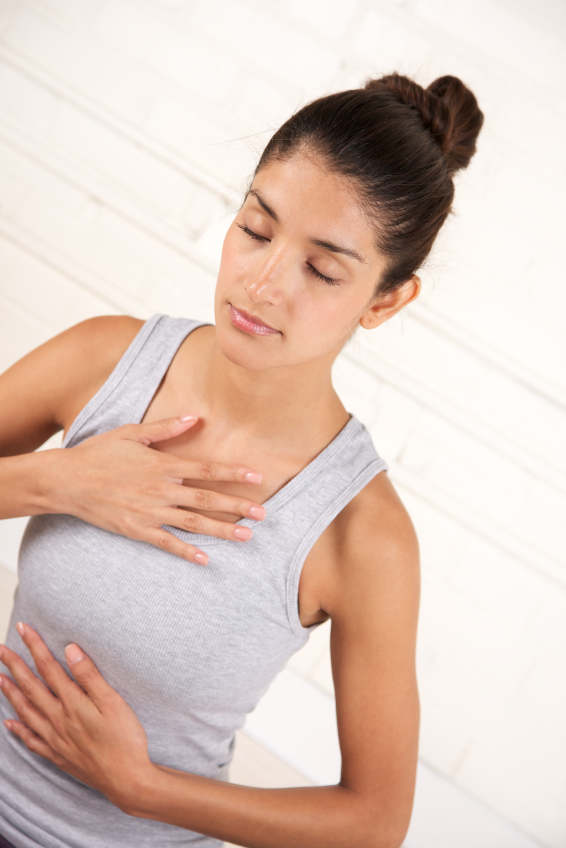
In order to stop anxiety chest pain, you have to go straight to the source: your anxiety.
Luckily, there are simple techniques you can use and lifestyle changes you can implement to help manage your anxiety or panic, many of which are free and easy to do.
Deep breathingBreathing deeply from your diaphragm is an effective way to reduce anxiety by slowing the heart and breathing rate, and can even stop a panic or anxiety attack in its tracks.
Though you can find many different types of breathing exercises online, a simple but effective exercise is as follows: Put one hand on your belly, and your other hand on your chest.
Take a slow, deep breath through your nose and allow your belly to push out the hand on your belly. The hand on your chest should not move. Exhale your breath through pursed lips and allow the hand on your belly to move inwards again, pushing all the air out.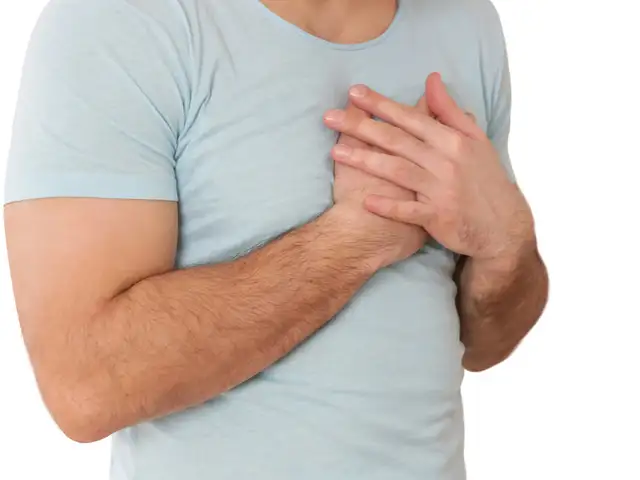 Repeat this 10 times.
Repeat this 10 times.
Meditation and other relaxation exercises (like journaling, counting, and visualizing) can be effective tools in calming the brain and slowing anxious thoughts.
Meditation is a practice that has been used for thousands of years, and even a few minutes can help wipe away stress and restore inner peace. Many web sites (including YouTube) offer free guided meditations, and no equipment is needed.
ExerciseGetting up and getting active is one of the best ways to help reduce your anxiety—and regular exercise is a great way to keep generalized anxiety in check.
Not only can it act as a welcome distraction from racing thoughts, but exercise can also decrease muscle tension and increase serotonin and other anti-anxiety neurochemicals.
Limit alcohol, caffeine, and smokingWhile smoking cigarettes and drinking alcohol and caffeine can feel like they’re helping quell your anxiety, studies show that all three can actually make it worse.
If you don’t want to quit any of them completely, take note of which you have consumed before you feel anxious to try to pinpoint which may be negatively impacting you, and limit your intake accordingly.
SleepWhile sleep may be the last thing on your mind in the middle of an anxiety or panic attack, getting enough sleep is important for keeping your anxiety in check.
Sleep deficiency has been linked to anxiety, depression, and other forms of illness. Adults should aim for seven to nine hours a night for healthy functioning and wellness.
Anxiety Chest Pain vs. Heart AttackAnxiety chest pain is so alarming because we associate chest pain with heart attacks. And it’s fair to feel concerned—about 735,000 people in the U.S. have heart attacks each year, and chest pain is one of the common symptoms.
But studies show that 80% of people who go to the emergency room with chest pain are not having a heart attack, and 58% of that group suffer from moderate to severe anxiety.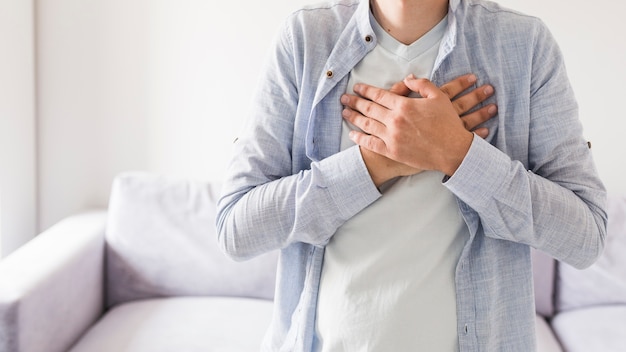
Though pain related to a heart attack and anxiety chest pain can feel similar, there are several differences between the two that can help you determine which you may be experiencing.
For example, while anxiety chest pain can feel different from person to person, it tends to limit itself to just the chest.
Most people experiencing heart attack chest pain, on the other hand, explain it as a squeezing, heavy, and/or aching pain that radiates outwards from the chest to the arms, shoulders, and jaw (also known as angina).
There are also differences when it comes to when the pain starts, and how long it lasts.
Anxiety chest pain tends to start when the body is at rest, and, as previously mentioned, lasts for approximately 10 minutes (this can vary, though).
Conversely, heart attack chest pain typically starts slowly when the body is active, and the pain gradually increases in intensity. Chest pain during a heart attack also tends to get worse with exertion and lasts longer than pain related to anxiety.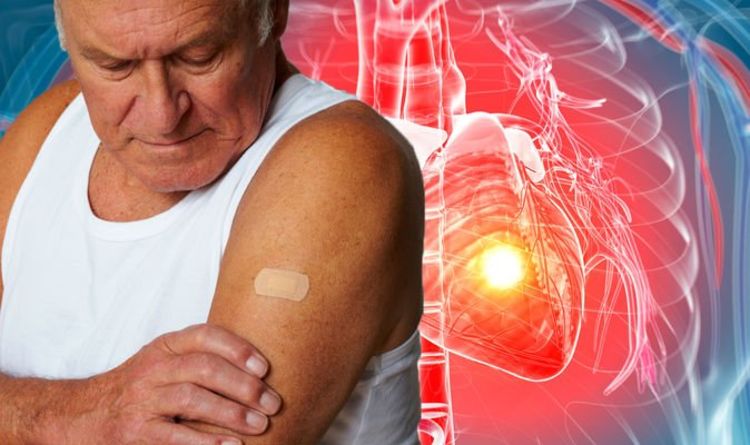
Interestingly, 30% of people experiencing a heart attack do not report chest pain. Other heart attack symptoms may include nausea, shortness of breath, increased heart rate, back pain, and exhaustion.
If you think you are experiencing a heart attack, seek medical attention as soon as possible.
Feeling anxious?
You shouldn’t have to live with anxiety. Get high-quality, affordable, and confidential mental health care with K Health. Take our free assessment to see if you have anxiety and what treatments might be right for you.
Take free assessment
When to See a DoctorEven if you suffer from anxiety, chest pain shouldn’t be ignored.
If you are experiencing persistent chest pain, seek medical advice to pinpoint the cause and rule out a heart problem, like coronary artery disease.
It may just be anxiety-related chest pain, but it’s always better to be sure. Both anxiety-related chest pain and heart conditions are treatable with the proper healthcare.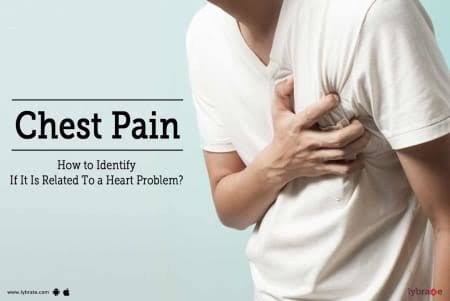
If anxiety and its symptoms are impacting your quality of life, a therapist and/or doctor can suggest therapy (like cognitive behavioral therapy) or prescribe medication to help get your anxiety under control.
This medical care can be life-changing by helping get symptoms—including chest pain—to subside.
How K Health Can Help
Stress and anxiety are among the most under-reported and under-treated diseases in America. Nearly 20% of adults in the US suffer from mental health illness and fewer than half receive treatment. Our mission is to increase access to treatment for those suffering in silence.
Want mental health support?
K Health offers anxiety medication for the right candidates.
Get connected to care in minutes.
K Therapy offers free smart chats, which are dynamic, pre-written conversations designed by experts that cover a number of common mental health topics such as depression, anxiety, stress, relationships, and more. Access them for free by downloading the K Therapy app.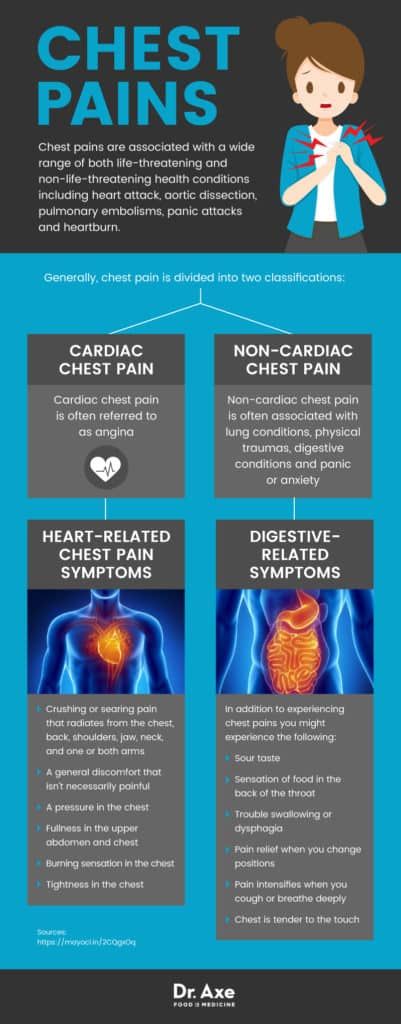
Online therapists are also available in select states for individualized care.
Connect with a licensed mental health therapist for unlimited asynchronous text-based therapy. Therapists respond Monday through Friday between 9am-5pm, within 24-hours.
.
K Health articles are all written and reviewed by MDs, PhDs, NPs, or PharmDs and are for informational purposes only. This information does not constitute and should not be relied on for professional medical advice. Always talk to your doctor about the risks and benefits of any treatment.
K Health has strict sourcing guidelines and relies on peer-reviewed studies, academic research institutions, and medical associations. We avoid using tertiary references.
-
Facts and Statistics.
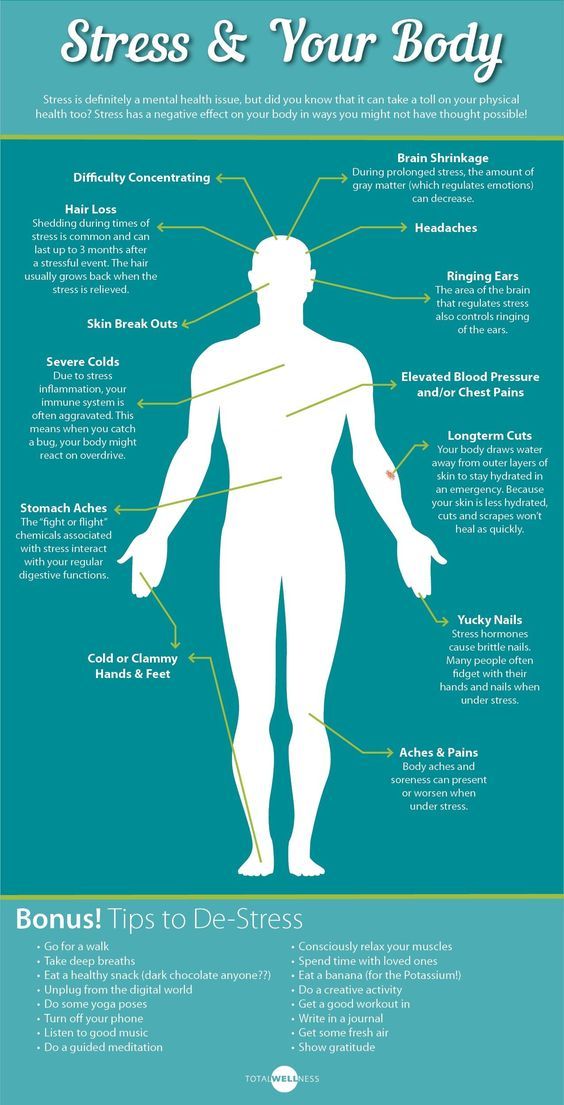 (n.d.).
(n.d.).
https://adaa.org/understanding-anxiety/facts-statistics -
What is Anxiety and Depression? (n.d.)
https://adaa.org/understanding-anxiety -
Panic Disorder and Chest Pain: Mechanisms, Morbidity, and Management.
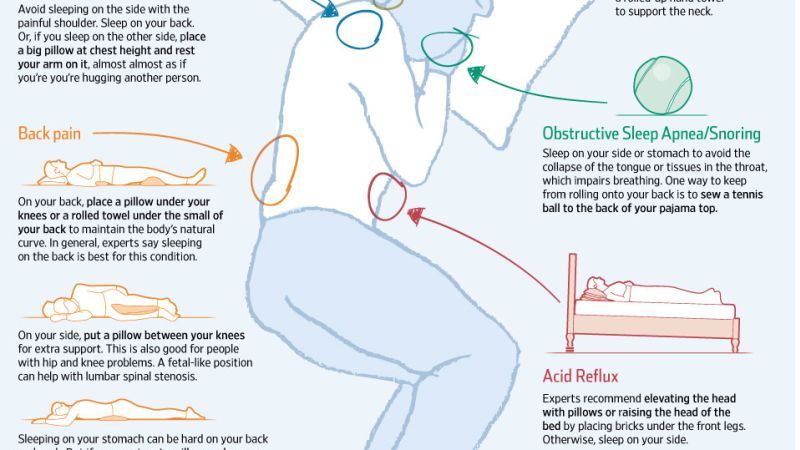 (2002).
(2002).
https://www.ncbi.nlm.nih.gov/pmc/articles/PMC181226/ -
Heart attack. (n.d.).
https://www.cdc.gov/heartdisease/heart_attack.htm -
Tips to manage anxiety and stress.
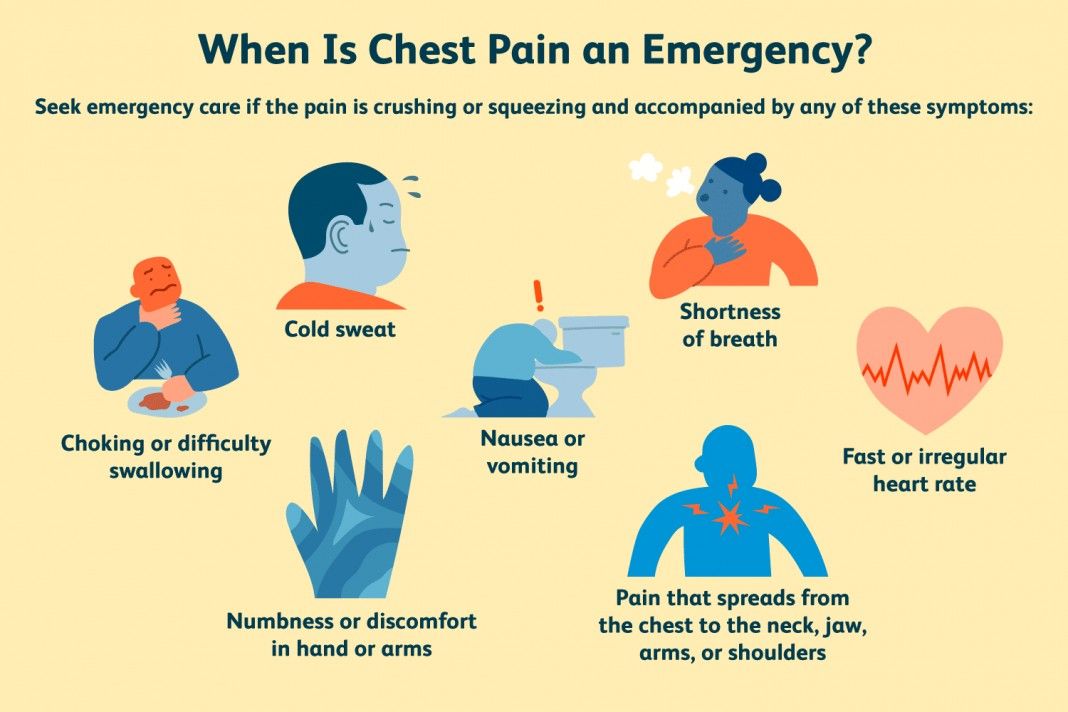 (n.d.).
(n.d.).
https://adaa.org/tips-manage-anxiety-and-stress -
Chest pain and its importance in patients with panic disorder. (2008).
https://www.ncbi.nlm.nih.gov/pmc/articles/PMC2629063/ -
Anxiety Associated With Increased Risk for Emergency Department Recidivism in Patients With Low-Risk Chest Pain.
 (2018).
(2018).
https://pubmed.ncbi.nlm.nih.gov/30086878/ -
A test of the effects of acute sleep deprivation on general and specific self-reported anxiety and depressive symptoms: an experimental extension. (2010).
https://pubmed.ncbi.nlm.nih.gov/20231014/ -
Can exercise help treat anxiety? (2019).

https://www.health.harvard.edu/blog/can-exercise-help-treat-anxiety-2019102418096 -
Stress Management: Breathing Exercises for Relaxation. (2020).
https://www.uofmhealth.org/health-library/uz2255 -
Meditation: A simple, fast way to reduce stress.
 (2020).
(2020).
https://www.mayoclinic.org/tests-procedures/meditation/in-depth/meditation/art-20045858 -
Heart Disease and Stroke Statistics – At-a-Glance. (2014).
https://www.heart.org/idc/groups/ahamah-public/@wcm/@sop/@smd/documents/downloadable/ucm_470704.pdf -
A review of the affects of worry and generalized anxiety disorder upon cardiovascular health and coronary heart disease.
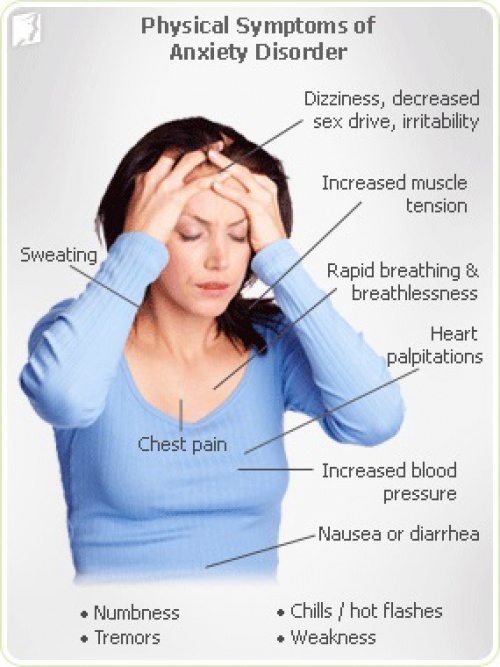 (2012).
(2012).
https://www.tandfonline.com/doi/abs/10.1080/13548506.2012.749355 -
Treatment of anxiety disorders. (2017).
https://www.ncbi.nlm.nih.gov/pmc/articles/PMC5573566/
What It Feels Like, Causes, and Remedies
Feeling worried, fearful, or nervous from time to time is quite normal for most people.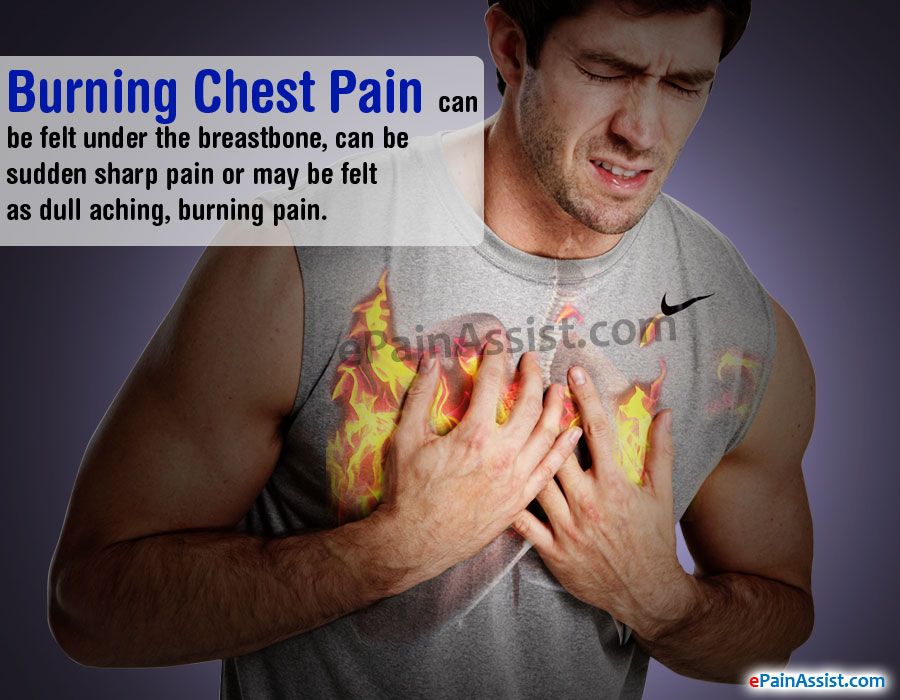 These are typical reactions to atypical moments in everyday life.
These are typical reactions to atypical moments in everyday life.
Some people experience anxiety frequently. Symptoms can move beyond feelings of concern or worry to other physical reactions. Occasionally, these symptoms are mistakenly associated with other conditions.
As an example, chest pain is sometimes a symptom of anxiety. Often the result of a panic attack or heightened reaction, chest pain is a concern because of the possible connection to heart attacks and other heart conditions.
If you experience frequent anxiety, learning to understand your chest pain can help you find symptom relief and identify when you need additional medical help.
Anxiety symptoms are rarely the same from person to person. Some days, symptoms aren’t even the same for the same person. Anxiety presents itself in a variety of ways, and that makes detecting or understanding symptoms difficult.
Chest pain associated with anxiety feels different for each person. Some people may experience chest pain on a gradual basis.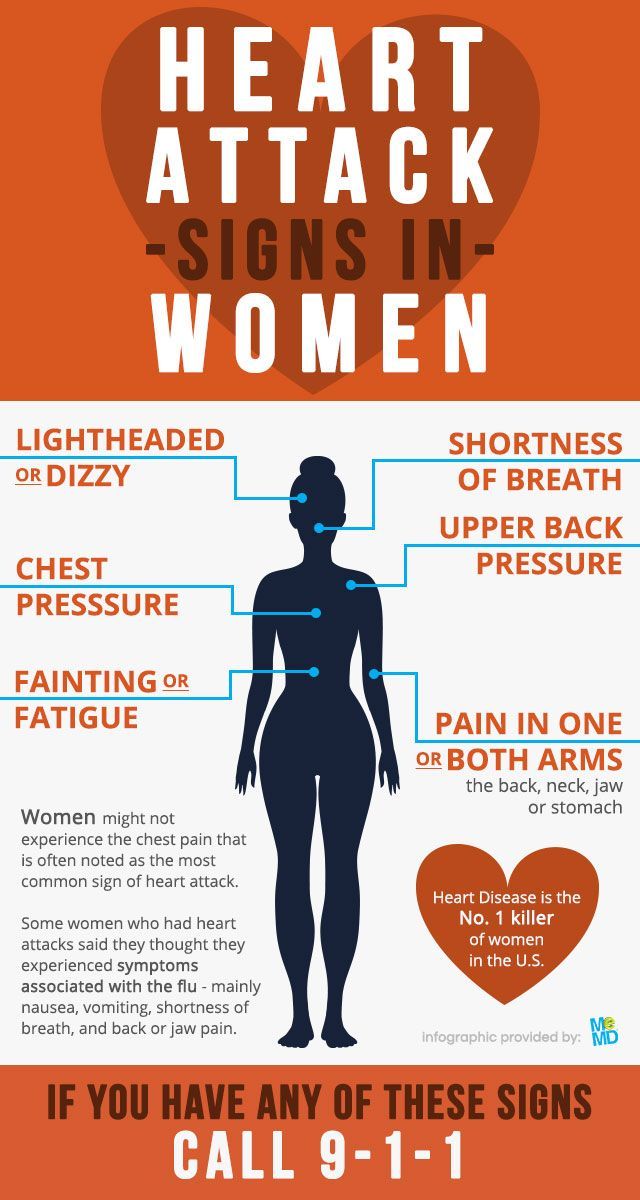 For others, the pain may be sudden and unexpected. Anxiety chest pain can be described as:
For others, the pain may be sudden and unexpected. Anxiety chest pain can be described as:
- sharp, shooting pain
- persistent chest aching
- an unusual muscle twitch or spasm in your chest
- burning, numbness, or a dull ache
- stabbing pressure
- chest tension or tightness
If you don’t have a history of chest pain with anxiety, you may be alarmed. Many people assume they’re having a heart attack and go to the hospital’s emergency department for treatment.
An estimated 25 to 50 percent of patients who come to the emergency department with low risk chest pain (chest pain not related to a heart attack) experience moderate to severe anxiety, according to 2018 research.
If you visit a hospital emergency room and the doctors don’t find a specific cause for your chest pain, consider consulting with your doctor about other possible causes, including anxiety.
Chest pain is a concerning symptom, and it’s usually best to seek emergency medical attention if you’re experiencing it.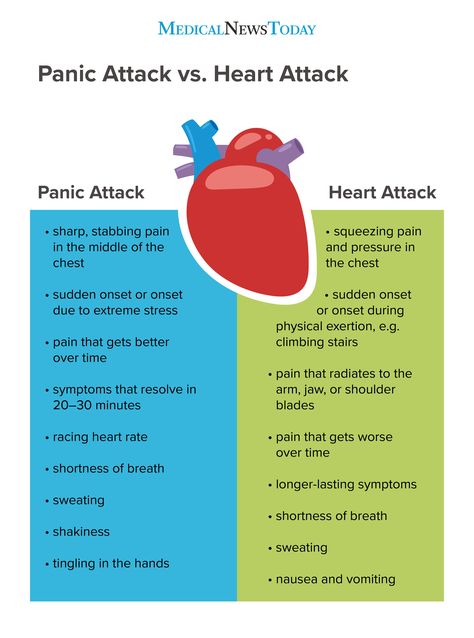 Even if the chest pain cause is anxiety, it’s better to know than to risk missing valuable time if you’re having a heart attack.
Even if the chest pain cause is anxiety, it’s better to know than to risk missing valuable time if you’re having a heart attack.
People describe chest pain in a number of ways when they’re having a heart attack. Some examples include:
- chest pain that radiates to other parts of your body, such as down your arms or up to your jaw
- chest pain that worsens with exertion
- nausea along with chest pain
- pressure in the chest, as if someone has put something heavy on your chest
- rapid heart rate
- shortness of breath
- squeezing sensation in the chest
An estimated 30 percent of patients who are having a heart attack don’t have chest pain, according to 2020 research. Some people report symptoms like back pain and fatigue as part of their heart attack symptoms.
While doctors know there is a connection between anxiety and chest pain, you still shouldn’t ignore your symptoms and seek medical attention.
Call your local emergency services if you’re having chest pain.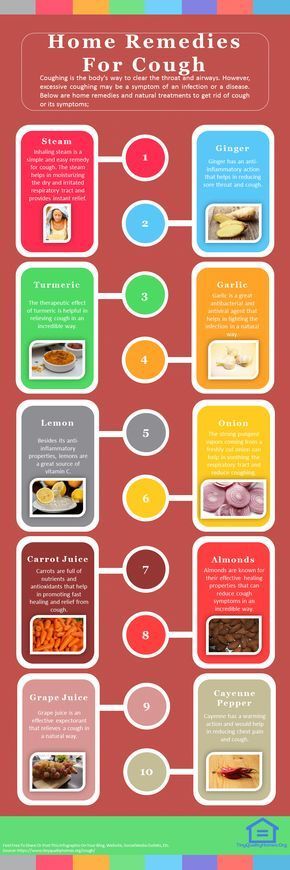 Don’t attempt to drive yourself to the hospital. Emergency personnel can evaluate you and determine whether you’re having a cardiac event or if there’s another reason for your chest pain.
Don’t attempt to drive yourself to the hospital. Emergency personnel can evaluate you and determine whether you’re having a cardiac event or if there’s another reason for your chest pain.
When you’re anxious, your body can and often does produce physical reactions like sweating or shortness of breath.
When you become anxious, your brain and body set off an immediate stress response. This includes a physiological change. Your body may tighten up or grow tense.
A stress response can also include a psychological or emotional response. You may become aggressive or upset more easily. These responses are referred to as the fight-or-flight response. When you become stressed or anxious, your body prepares to fight back or run away.
If you experience this fight-or-flight stress reaction infrequently, your body should fully recover within 30 minutes. But if you experience it frequently, your body can’t recover as quickly. This can lead to increased muscle tension, and this tension may become painful in your chest.
Likewise, in an even more stressful moment, your heart rate may increase, and the force of your heartbeats can grow stronger. That combined with tight chest muscles can make you feel unusual pain.
If you feel anxious, there are some simple techniques you can try. These techniques may not work every time, but they’re a great starting point when you need help managing your anxiety.
Practice deep breathing
Focused, deep breaths can calm both your mind and your body. Find a quiet room or area, and inhale for a count of 10. Hold for a second, and then exhale for a count of 10. Repeat this several times as you feel your heart rate fall.
Take stock of the situation
Accept your feelings of anxiety, recognize them, and then work through putting them in perspective.
Are you worried about something you can’t control? Are you fearful of an outcome that’s unlikely? Are you dreading a situation you can’t control the outcome of? Talk your way through your feelings to find the source, and then work to put them into perspective.
Picture a beautiful scene
If you’re feeling anxious, try visualizing a place that instantly calms you. This can be especially helpful if you’re feeling anxious while in a situation you can’t avoid, like a stressful meeting. Practice deep breathing while you envision this location.
Use a relaxation app
Smartphone apps for anxiety can walk you through stress reduction techniques and exercises. There are also meditation apps that may help you quiet your mind when you’re feeling anxious. Many of these apps are free, so you can try out several to find one that works for you.
Be proactive about your physical health
Are you taking good care of your body? Are you getting enough sleep? Are you eating well? Taking good care of your body is also taking good care of your mind. While this won’t help treat anxiety chest pain, it may help you reduce your risk for anxiety and subsequent chest pain in the future.
If your anxiety and chest pain are severe or chronic, you may need to consult with a therapist.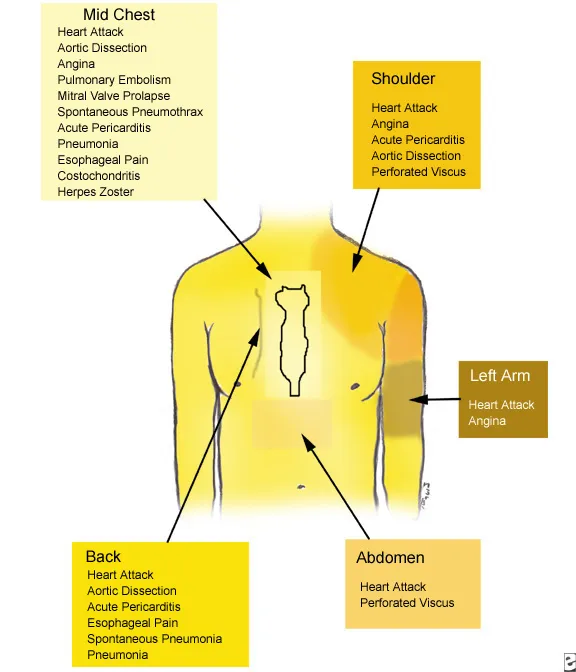 They can talk you through situations that cause anxiety and share coping techniques.
They can talk you through situations that cause anxiety and share coping techniques.
These techniques may not come naturally to you if you’re often anxious. This is where a healthcare professional can help.
A therapist or doctor may be able to teach you coping techniques that help you feel in control and secure. When you begin to regain a sense of calm, your symptoms, including chest pain, will subside.
If coaching techniques or mental exercises aren’t successful, you may need to consider a prescription. Anti-anxiety medications have side effects and risks. But using them as a stopgap while you learn how to cope with symptoms can be helpful.
Chest pain shouldn’t be ignored. If you’re experiencing it, seek medical attention to rule out a heart condition. If your chest pain is found to be related to anxiety, then you can work with a therapist or doctor to learn coping techniques or determine the best treatment for you.
Identifying anxiety as the cause of your chest pain is an important step in treating your condition. As you learn to manage the side effects of anxiety, you’ll also learn to manage unintended complications like chest pain.
As you learn to manage the side effects of anxiety, you’ll also learn to manage unintended complications like chest pain.
While you can’t know for sure if or when you’ll experience anxiety chest pain again, preparing yourself with coping techniques and practices will help you feel more prepared and in control.
Read this article in Spanish.
Heart alarm - For a healthy lifestyle! - Articles - Center of Modern Cardiology
Very often people complain of pain in the heart, but it turns out that the stomach hurts, suffers from osteochondrosis or stress has led to the development of depression. And the development of a heart attack is not recognized, they are attributed to the same stomach, osteochondrosis or even toothache. How to figure it out? Let's try to help.
angina pectoris. That was the name in the old days of the disease that we now call angina pectoris. A heart attack usually begins with a pressing or burning pain in the center of the chest (doctors say "behind the sternum") during exercise or stress, although it can develop at rest.
The pain is quite intense, can radiate to the lower jaw, shoulders and arms (more often to the left, but possibly both), to the neck, throat and back. Sometimes it disguises itself as bursting pains in the same areas or pains in the stomach (upper abdomen - epigastrium), simulating an intestinal disorder. The pain disappears at rest in a few minutes, and if you put a nitroglycerin tablet under the tongue (or spray a spray containing nitroglycerin) - almost instantly.
If such pain lasts longer than 20-30 minutes and its intensity increases, the development of a heart attack is not excluded. Timely assistance significantly reduces the risk of dying from a heart attack, so you need to call an ambulance team as soon as possible. Recording an ECG in a heart attack almost always helps to make a diagnosis.
Heart attack cancelled. Very often, young women come to the doctor with complaints of pain in the heart. How could it be otherwise, because through the heart we pass all our troubles, worries and joys.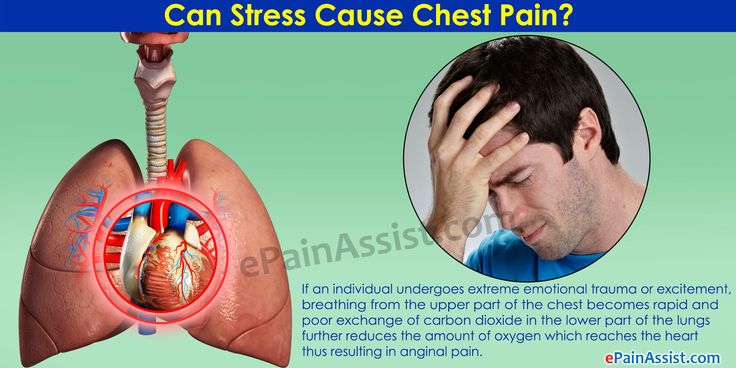 In this case, there is usually no cause for alarm.
In this case, there is usually no cause for alarm.
In young women, "heart pain" is often functional, meaning it is not caused by angina pectoris. Female sex hormones protect blood vessels from the formation of atherosclerotic plaques. And if you look, “heart” pains bother women not in the area where “angina pectoris” likes to settle, but in the left half of the chest, in the armpit or under the left breast. They are, as a rule, in the nature of discomfort, stabbing or aching pain, and can last from half an hour to several hours or even days.
These feelings arise for various reasons. Stress, sleep deprivation, overwork, premenstrual periods…and, as a result, an anxiety or depressive disorder. The skeletal muscles are tense, on the shoulders they are compacted into painful lumps - “lumps of nerves”! Sometimes it is enough to have a short, but good rest, pleasant emotions.
In more serious cases, one has to seek help from a neurologist , a psychotherapist.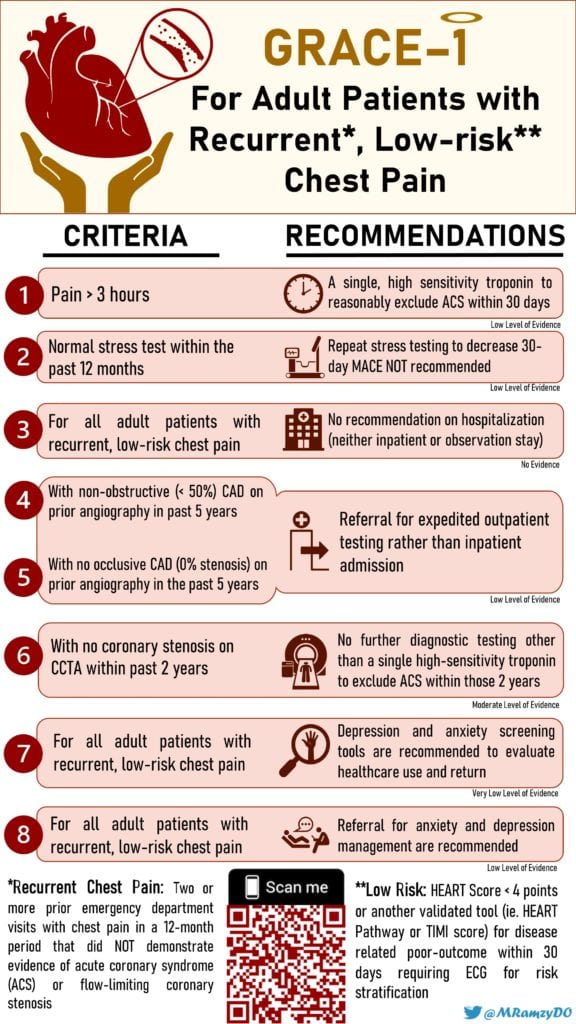 Remember: the longer the depression lasts, the more difficult it is for the doctor to completely relieve you of discomfort, sleep disturbances and bad mood. However, in addition to stress, other reasons can lead to pain in the “heart area”.
Remember: the longer the depression lasts, the more difficult it is for the doctor to completely relieve you of discomfort, sleep disturbances and bad mood. However, in addition to stress, other reasons can lead to pain in the “heart area”.
"Bouquet of diseases". Osteochondrosis, a disease of sedentary people, leads to pinching of the nerve roots and the development of pain. If the thoracic spine is involved, then it is the heart that falls under the patient's suspicion - it pricks and pierces, lies on the chest with a lump or stone, catches with inhalations and sharp turns of the body, and aches for hours.
If such sensations occur during strong excitement, then the full impression of a heart attack can be formed. But the true cause of the pain in this case is the tension of the muscles of the neck and back. Unlike an attack of angina, which is quickly relieved by nitroglycerin, pain medications, massage, kneading the back with hydromassage jets can help, shock wave therapy.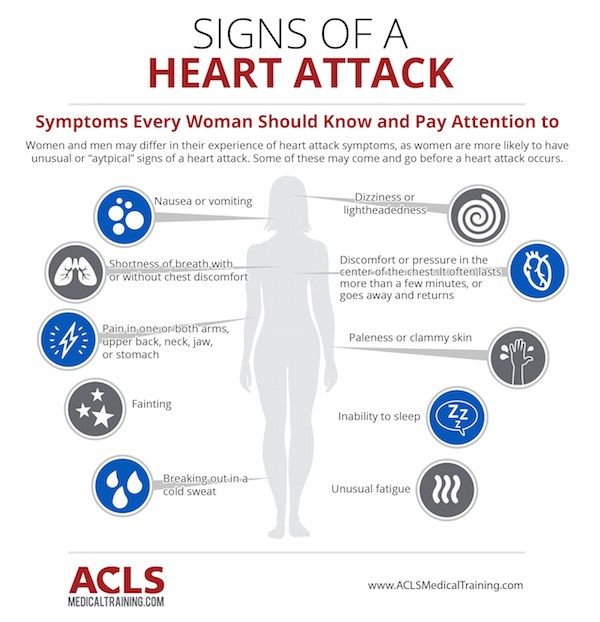 During examination, changes in the vertebrae can be found on an x-ray of the spine. But the ECG, even at the time of the most intense neuralgic pain, will be normal.
During examination, changes in the vertebrae can be found on an x-ray of the spine. But the ECG, even at the time of the most intense neuralgic pain, will be normal.
Chest pain may occur during a cold if it is complicated by bronchitis. Coughing can add discomfort, since already on the second day of a hacking cough, in addition to the bronchi, pectoral muscles will add to the pain. If the cold is complicated by pneumonia and pleurisy, then with a deep breath and exhalation, changes in pain can be noticed. The pain increases with inhalation, when the lungs straighten and “rub” against the inflamed pleura, and decreases with exhalation.
The doctor will recommend an X-ray of the lungs, listen with a phonendoscope for wheezing in the lungs.
Do not forget about the stomach, pancreas and gallbladder. A common cause of chest pain is intercostal neuralgia, herpes zoster, and in women - mastopathy. Regular palpations of the mammary glands must be carried out by women after 30-35 years, and if there is pain or induration, consult a doctor who will most likely refer you to an ultrasound of the mammary glands and mammography.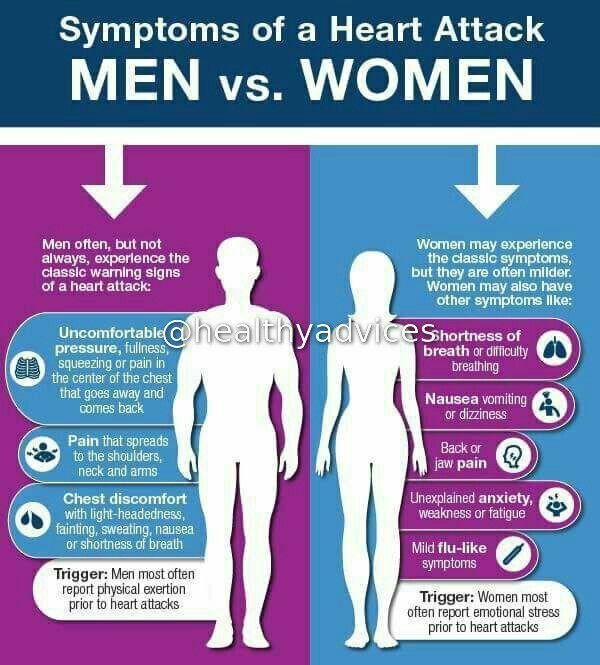
Gender matters, because it is in women that “heart pain” during examination turns out to be a mask of other diseases, and in men over 40 any “gastritis, osteochondrosis attack or sore tooth” may turn out to be a first-time developed heart attack. A timely visit to the doctor is necessary if the heart is at risk.
On the other hand, all the pains in the chest should not be blamed on the poor heart either.
Let's try to figure it out, analyze our feelings and try to distinguish between an attack that can threaten health and functional pain.
- Stitching or aching pain in the left side of the chest, which does not give anywhere?
- The pain begins and goes away gradually, lasts a long time, for hours, and even days, if you are stressed?
- Physical activity does not cause or increase discomfort in the heart area, and sometimes even relieves it?
- The pain does not go away after taking nitroglycerin, but subsides with sedatives?
If you answered “yes” to most of the questions, you probably don't have to worry about your heart.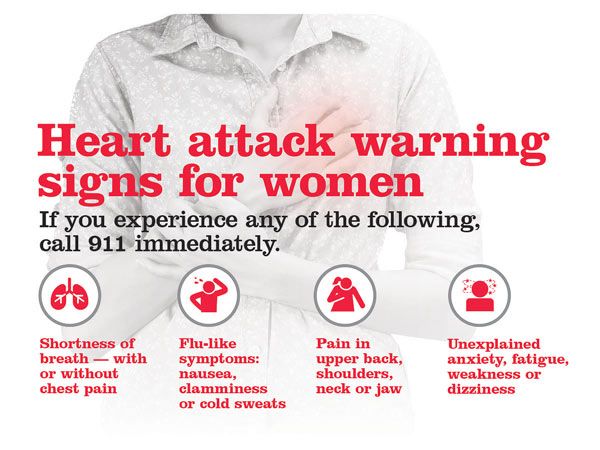 If so, complete the Hospital Anxiety and Depression Scale (HADS) and the CES-D questionnaire. Perhaps the stresses in your life have led to the development of depression and the consultation of a psychotherapist will relieve your "heart anxiety".
If so, complete the Hospital Anxiety and Depression Scale (HADS) and the CES-D questionnaire. Perhaps the stresses in your life have led to the development of depression and the consultation of a psychotherapist will relieve your "heart anxiety".
when you need to urgently call an ambulance
Back to list Back to list
19 September 2019 14:40
Pain is the body's way of notifying us that something is not working as it should. If it causes significant discomfort, the usual painkillers have no effect, or they help poorly, the pain grows, or suddenly pierces like a dagger, there are feelings of anxiety, panic, you must definitely listen to your body and take action. If pain sensations appear and disappear for a long time, but in the same place, you must definitely inform your doctor about this.
What can cause discomfort in the chest and when should I call an ambulance immediately?
What conditions can cause chest pain?
• - angina pectoris
• - heart attack
• - heartburn
• - contusion of the chest
• - broken ribs
• - increased anxiety or panic disorder
• - asthma, bronchitis, pneumonia
• - mitral valve prolapse
• - pericarditis
• - peptic ulcer
• - spasm of the coronary arteries
• - aortic dissection
When is chest pain a reason to urgently call an ambulance?
There is practically no connection between the severity and duration of chest pain and the danger of diseases that it may accompany.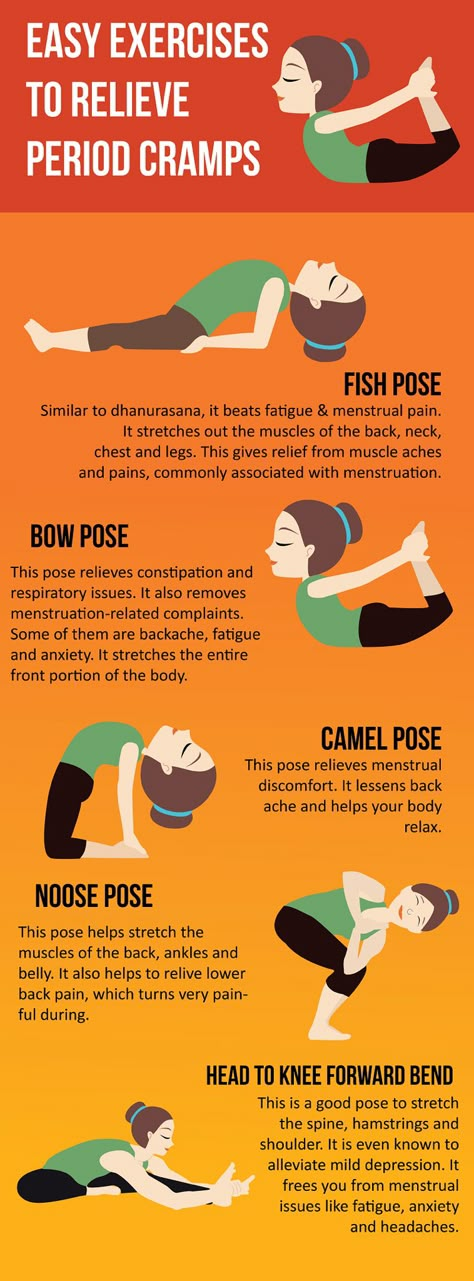 Even slight discomfort behind the sternum can be a symptom of heart vascular disease: for example, according to statistics, up to 30 percent of heart attacks that occurred were not accompanied by any symptoms that were noticeable to a person.
Even slight discomfort behind the sternum can be a symptom of heart vascular disease: for example, according to statistics, up to 30 percent of heart attacks that occurred were not accompanied by any symptoms that were noticeable to a person.
Therefore, the most correct decision is to urgently consult a doctor for any alarming sensations in the chest. And the symptoms listed below will help you make the right decision when helping another person. So, the emergency medical phone should be dialed if:
• - A person over 40 years of age with one or more risk factors for heart disease: a family history of heart attacks and strokes, smoking, obesity, sedentary lifestyle, high cholesterol, diabetes mellitus.
• - A person of any age has already been diagnosed with a cardiovascular disease.
• - The pain is in the nature of a strong compression, heaviness in the chest, making it difficult to breathe or very acute.
• - The pain is accompanied by nausea, weakness, shortness of breath, sweating, pallor, dizziness or fainting.


